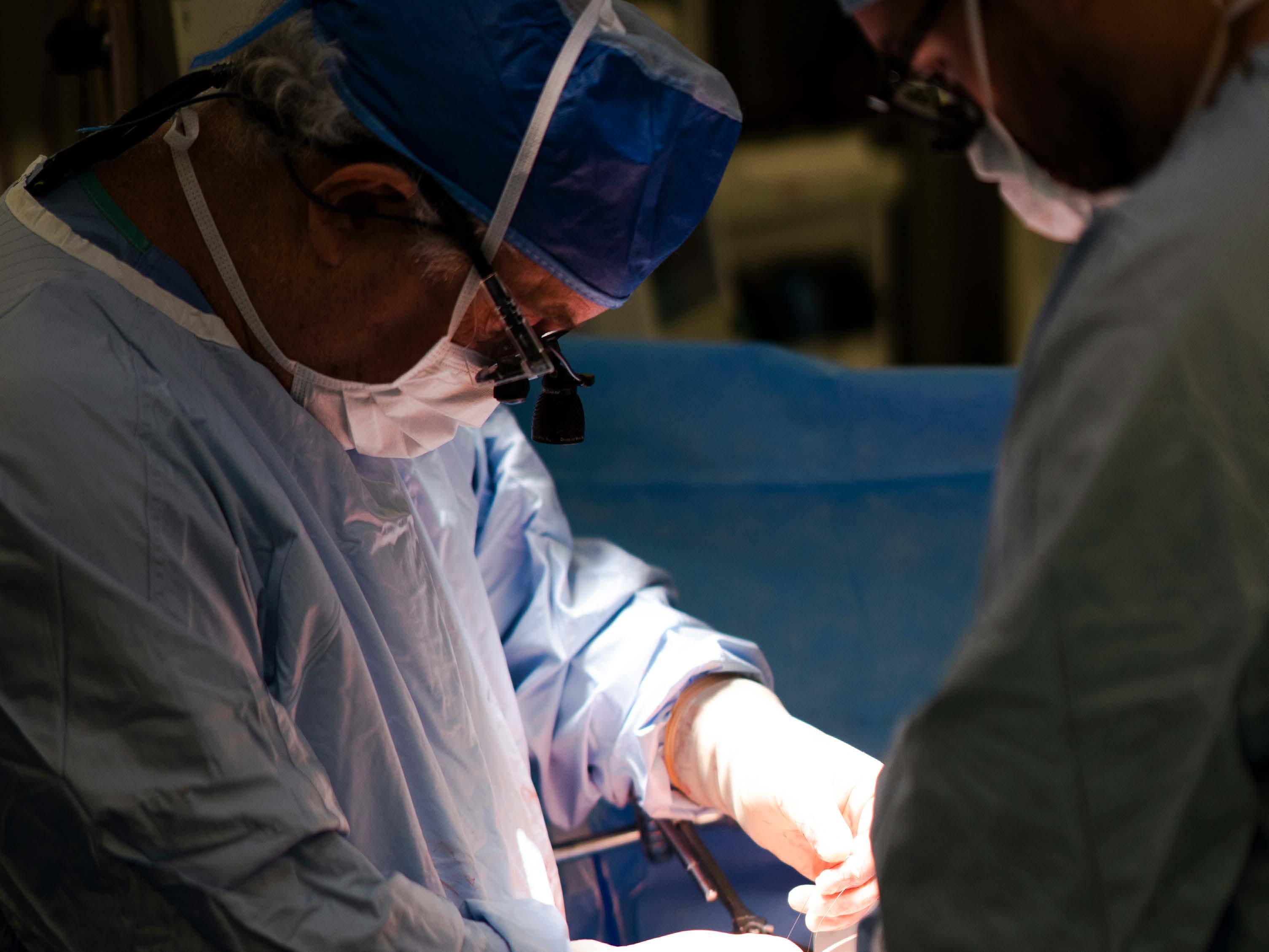
1 minute read
INTEGRATED CARE, DYNAMIC RESEARCH PANCREATIC CANCER: COLLABORATING TO EXPEDITE DIAGNOSIS AND ELIMINATE CANCER
With a consistent record of superior patient outcomes, active research is underway to explore novel treatments for pancreatic cancer. Our team has unrivaled expertise in treating pancreatic cancer, collaborating with oncology researchers to study new diagnostic modalities that may expedite diagnosis in the future.
All patients at Houston Methodist undergo multidisciplinary evaluation and care with therapeutic plans based on weekly tumor board meetings, a collaboration between the Underwood Center and the Neal Cancer Center. For locally advanced cancer, patients may undergo neoadjuvant therapy to downstage, or our surgeons may perform complex resection and vascular reconstruction. We routinely perform tumor mutational testing for advanced and metastatic tumors.
Our interventional endoscopy team maintains a high success rate for obtaining endoscopic ultrasound-guided biopsies in patients with pancreas mass lesions.
Clinical Differentiators
• We offer innovative surgical options, including pancreaticoduodenectomy (Whipple) and minimally invasive pancreatectomies.
• Houston Methodist’s advanced imaging and endoscopic techniques help detect and evaluate pancreatic cancer, with the ability to biopsy and analyze in detail lesions of concern.
• Our multidisciplinary approach of neoadjuvant, surgical and adjuvant therapies enables us to maintain one of the lowest mortality rates in the country.
Techniques include using endoscopic ultrasound-guided gastro-gastric stent placement in gastric bypass patients for performing biopsy from pancreatic mass lesions; using a new tool called the SpyGlass™ cholangioscopy to better visualize the bile ducts; and conducting mutational testing of pancreatic cyst fluid aspirates.
Various genetic mutations predispose patients to a higher risk for pancreatic cancer, including STK11/LKB1, CDKN2A, BRCA-1, BRCA-2, PALB2, ATM, MLH1, MSH2 and MSH6. We offer pancreatic cancer screening after extensive discussion of pros-and-cons with patients.
We are a high-volume center with proven surgical outcomes — even with a higherrisk patient population. Most studies indicate that high-volume pancreatic surgery centers are best suited to care for patients with pancreatic cancer, as evidenced by the superior outcomes for our seven experienced pancreatic surgeons. For many patients, our goal is to expedite diagnosis and elimination of cancer. Our innovative therapies include minimally invasive surgical techniques, novel chemotherapy and immunotherapy.
Most distal pancreatectomies at Houston Methodist are performed using minimally invasive techniques, with new robotic surgeries and technologies on the not-sodistant horizon.
Research Initiatives
• Reviewing molecular analysis of cystic fluid to differentiate benign cystic lesions from cystic lesions with malignant potential
• Identifying the role of cholangioscopy-directed biopsies versus the use of large-caliber cytology brushes in obtaining a diagnosis in technically challenging hilar bile duct strictures — a significant portion of Houston Methodist’s patient population
• Developing CAR T-cells against pancreatic cancer
• Launching a clinical trial of immunotherapy combined with chemotherapy against pancreatic cancer











